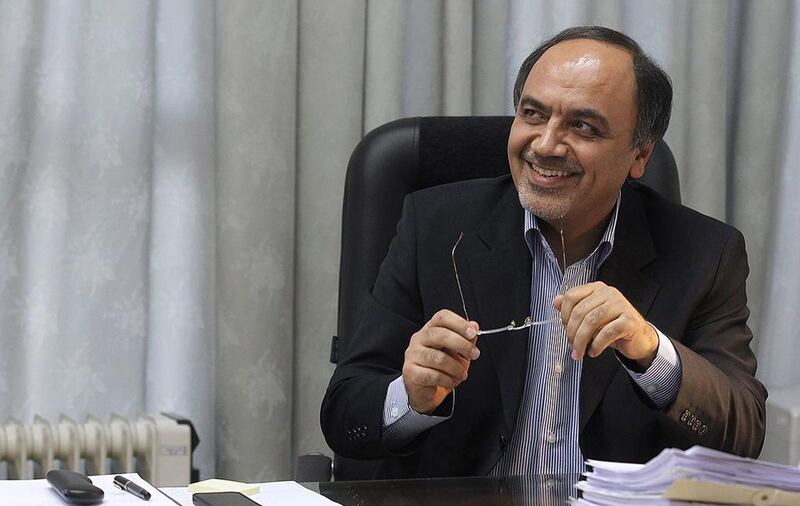TEHRAN // Iran will not name a new ambassador to the United Nations after Washington refused to grant a visa to Tehran’s first choice for the job.
Iran’s candidate, Hamid Aboutalebi, was allegedly involved in the 1979 takeover of the US embassy in Tehran and the hostage crisis that followed, the incident that ended diplomatic relations between the two countries.
Washington’s refusal to grant Mr Aboutalebi a visa could affect the future of negotiations between Tehran and world powers over its controversial nuclear programme at a time when both sides report that the talks are moving in a positive direction.
“We chose Aboutalebi as our representative to the United Nations and the United Nations headquarters are located in US territory so Americans, by rejecting his entrance, are taking advantage of the United Nations’ geographical location,” Alaeddin Boroujerdi, the head of Iran’s National Security and Foreign Policy committee, said on Saturday.
Abbas Araqchi, the Iranian deputy foreign minister for legal and international affairs said Tehran is “considering no alternative to replace Mr Aboutalebi and is pursuing the issue through legal mechanisms”.
Iranian officials appear to consider the decision to deny Mr Aboutalebi a visa simply a new way for the US to express its hostility against the Islamic Republic.
Mr Boroujerdi, a prominent MP, asked the foreign minister, Mohammed Javad Zarif, to write a letter of protest to the UN secretary general Ban Ki-moon.
On Friday, the White House had said that it had notified Tehran and the UN that the US would not issue Mr Aboutalebi with a visa.
The announcement followed the US House of Representatives unanimously voting on legislation that would prevent Mr Aboutalebi and others who Washington deems terrorists or a national security threat from entering the US.
“Our preference certainly would have been that he wouldn’t have been nominated to begin with,” the State Department spokeswoman Jen Psaki said. “We’ve made our concerns clear, and they’re going to make whatever choice they’ll make.”
Tehran rejected Washington’s decision as “unacceptable” and slammed a previous US statement that Mr Aboutalebi nomination was “not viable.”
Mr Aboutalebi, a veteran diplomat, who currently runs the president Hassan Rouhani’s political affairs office, denies any direct role in the embassy takeover in November 1979, when a group of Iranian university students seized the US Embassy in Tehran and held 52 Americans hostage for 444 days.
He said that he only served as a translator during negotiations to release the hostages.
Some Iranian analysts think that Tehran should use the rejection of Mr Aboutalebi to its political advantage in negotiations with Washington.
“There is no doubt that Iran can now use the Aboutalebi’s case for bargaining. If US does not want to accept Aboutalebi, it should at least suggest some good alternatives to Iran, such as it incentives or removing some sanctions that would motivate Iran to change its candidate for the position,” said Amir Mohebbian, a conservative political analyst at the Islamic Azad University.
But for now Mr Rouhani appears to be standing firmly with his choice to represent Iran at the UN.
“It is Iran’s absolute right to introduce anyone as its envoy to the UN,” Mr Mohebbian said.
foreign.desk@thenational.ae





